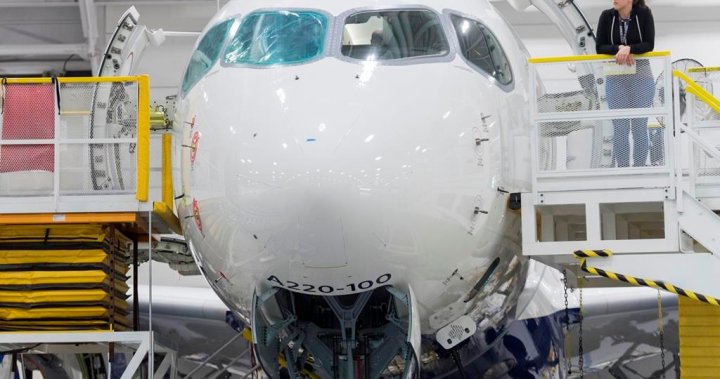Workers at an Airbus assembly plant in Mirabel, Quebec have rejected a contract offer for the third time. The International Association of Machinists and Aerospace Workers, representing about 1,300 employees at the facility, saw nearly 70 per cent of its members voting against the agreement in principle. The union spokesman, Éric Rancourt, expressed surprise that negotiators believed they had reached a deal that would satisfy members, only to have it rejected. This rejection comes after workers previously voted in favour of strike action following the rejection of a second offer from the employer.
The proposed five-year contract included a wage increase of eight per cent in the first year, with subsequent annual increases of three or four per cent. Airbus has stated its commitment to reaching a new collective agreement that is fair for both parties and ensures the long-term success of the A220 plane, which is assembled at the Mirabel plant. Despite these efforts, the repeated rejections by unionized workers indicate a significant disconnect between the proposed terms and what employees are seeking in a contract.
The rejection of the contract offer by workers at the Airbus assembly plant highlights the ongoing challenges faced by both labor unions and employers in reaching agreements that satisfy all parties involved. The need for fair compensation, job security, and overall satisfaction with working conditions are key factors in negotiations between unions and corporations. In this case, the rejection of the proposed contract signals a breakdown in communication and alignment between the union and the company, leading to continued discord.
The rejection of the contract offer by workers at the Mirabel plant underscores the importance of effective communication and negotiation in labor relations. Both the union and Airbus will need to reassess their positions and priorities in order to move forward and reach a mutually beneficial agreement. Finding common ground and addressing the concerns of workers will be essential in resolving the conflict and avoiding potential disruptions to production at the assembly plant.
The rejection of the contract offer may have broader implications for labor relations in the aerospace industry and beyond. As workers continue to push for better wages, benefits, and working conditions, companies will need to find ways to address these demands while also remaining competitive in the market. Balancing the needs of employees with the financial constraints of the company will be a key challenge for both parties moving forward.
In conclusion, the rejection of the contract offer by unionized workers at the Airbus assembly plant in Mirabel reflects ongoing tensions in labor relations and the challenges of reaching mutually satisfactory agreements. Both the union and the company will need to reassess their positions and work towards finding common ground in order to avoid further disruptions and ultimately reach a new collective agreement that meets the needs of all parties involved. The outcome of these negotiations will not only impact the workers and the company but may also have broader implications for the aerospace industry as a whole.


